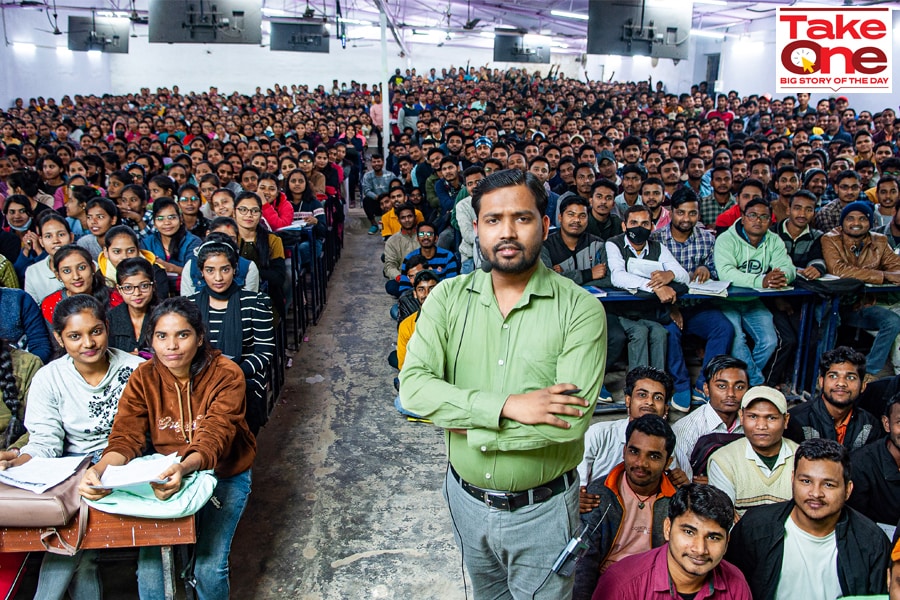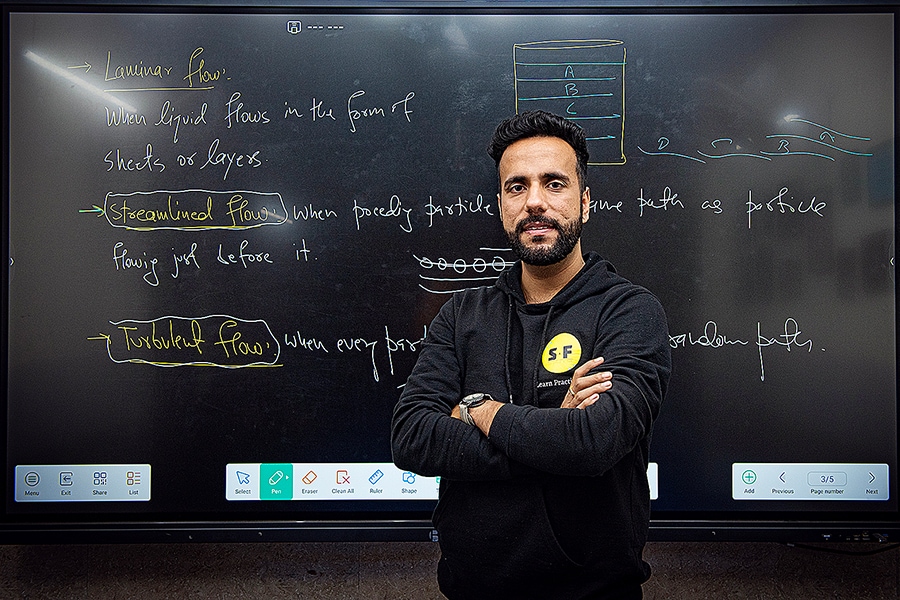
From Khan sir to Ashu Ghai to Vishal Tiwari, star teachers shine despite the shadows of edtech giants
One-celebrity, teacher-led YouTube channels are converting their audiences into real businesses. But can they scale and dethrone the edtech giants?
 Khan sir still charges Rs 200 for six-month courses that help students clear competitive exams such as UPSC, NDA, and Airforce entrance test, among several others. Image: Manish Sinha for Forbes India
Khan sir still charges Rs 200 for six-month courses that help students clear competitive exams such as UPSC, NDA, and Airforce entrance test, among several others. Image: Manish Sinha for Forbes India
Khan Sir, as he is known by his students, animatedly talks of a time when bullets were pelted, and bombs exploded at his coaching centre in Patna.
“One bomb landed near my foot, but it didn’t burst,” he recalls.
Rivals from other coaching centres were responsible, he says, because of his record low tuition fees: Rs 200 for a six-month course to prep for a government job versus the offline industry standard of roughly Rs 15,000. Naturally, students from all over Patna—and beyond—flocked to Khan’s classes, who never reveals his full name to anyone.
If anything, the attacks made Khan more of a hero. Classes resumed that same evening as hundreds of students took turns at guarding the centre while their peers were being coached. “I did not need any police protection. For one month my students stood by me like NSG guards giving me Z+ level security,” he beams.
This was in mid-2019. Fast-forward to today and Khan still charges Rs 200 for six-month courses that help students clear competitive exams such as UPSC, NDA, and Airforce entrance test, among several others. The only difference is that he now teaches on YouTube—a shift he had to make due to the coronavirus pandemic.











